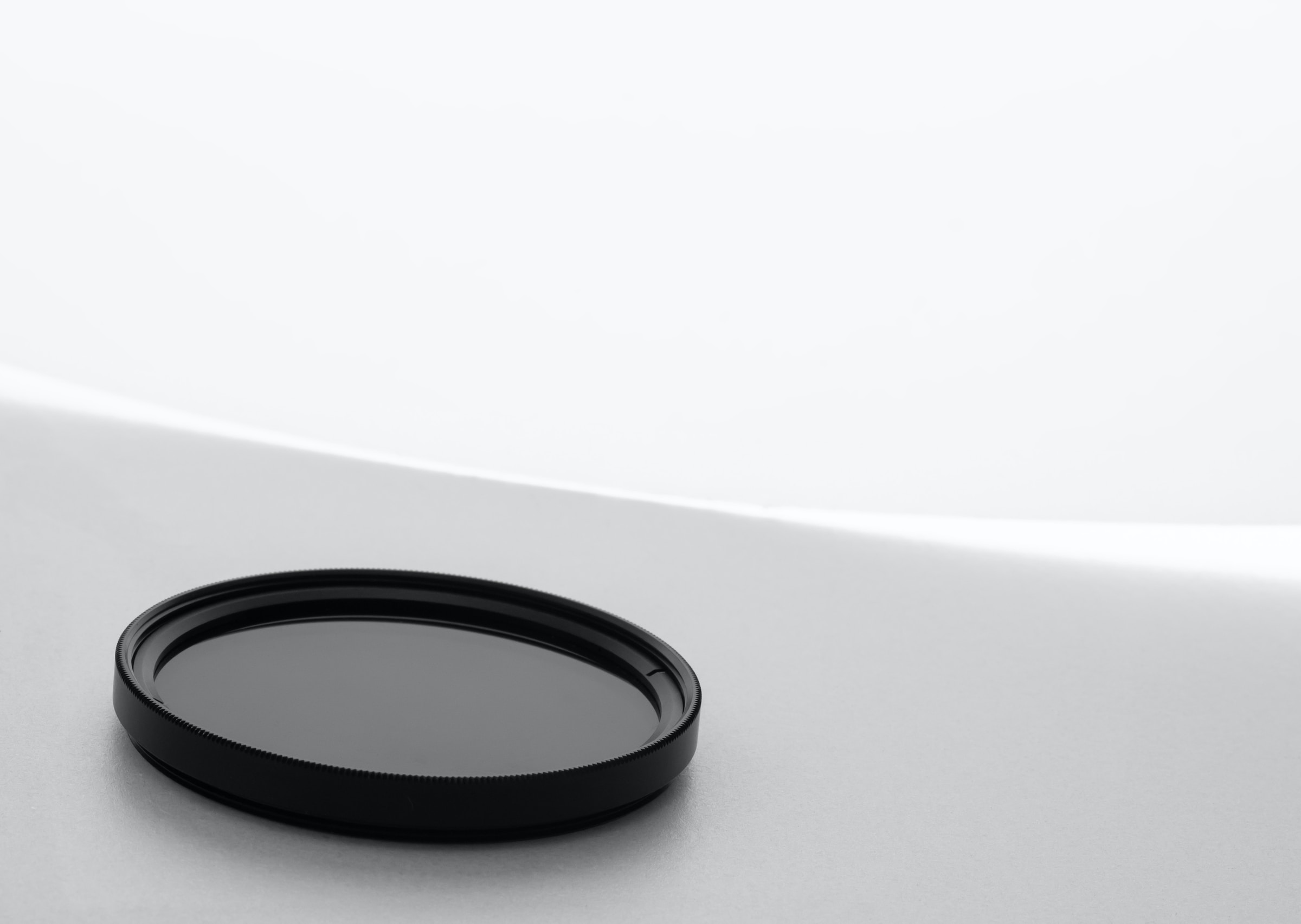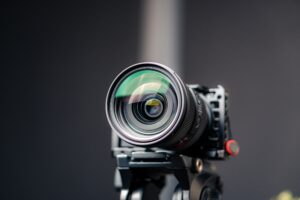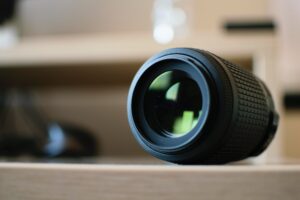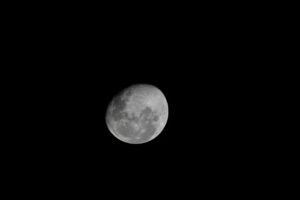UV filters are a crucial accessory for any photographer who wants to protect their lenses from scratches, dust, and other elements that can damage their equipment.
They can also help reduce haze and improve the clarity of your photos. In this article, we’ll be discussing the best UV filters for lenses and what you should look for when purchasing one.
When it comes to UV filters, there are two main types: coated and uncoated.
Coated filters have a special coating that helps reduce reflections and improve contrast, while uncoated filters do not. Coated filters are generally more expensive, but they offer better image quality.
When choosing a UV filter, it’s essential to consider the quality of the glass.
Cheap filters can introduce unwanted distortion and reduce image quality. Look for filters made from high-quality glass and ensure that they have a multi-coating to reduce reflections.
Another important factor to consider is the filter’s size. Make sure to choose a filter that fits your lens correctly. Most filters have the diameter size printed on the rim, so it’s easy to determine the correct size for your lens.
Overall, the best UV filter for your lens will depend on your specific needs and budget.
In the following sections, we’ll be reviewing some of the best UV filters on the market and highlighting their unique features.
Best UV Filters for Lens
We know how important it is to protect your camera lens from harmful UV rays. That’s why we’ve put together a list of the best UV filters for your lens.
These filters not only protect your lens, but also improve the quality of your photos by reducing haze and increasing contrast.
We’ve researched these filters to ensure that they are the top performers on the market. Check out our list below to find the perfect UV filter for your lens.
Urth 67mm UV Lens Filter (Plus+)

If you’re looking for a high-quality UV filter for your lens, the Urth 67mm UV Lens Filter (Plus+) might be the right choice for you.
Pros
- Enjoy sharper, clearer images with Urth UV Filter Plus+ that cuts ultraviolet light.
- Get the best light transmittance, reduced lens flare, and ghosting with the 30-layer nano-coated German SCHOTT glass.
- Remove atmospheric haze and its blue color cast for truer colors and sharper details.
Cons
- The filter might cause autofocus issues with some lenses.
- The lens might scratch easily while using proper cleaning fibers.
- The filter might be expensive compared to other options.
Urth UV Filter Plus+ is a great choice if you want to protect your lens from scratches, dirt, and oil.
The 30-layer nano-coating provides better protection and ensures the filter lasts longer.
Moreover, Urth funds local communities to plant five trees in areas affected by deforestation, so you can contribute to a good cause while protecting your lens.
The German SCHOTT glass used in the Urth UV Filter Plus+ ensures the best light transmittance, reduced lens flare, and ghosting.
This means you can capture clearer, sharper images without any distortion or color cast.
Additionally, the filter removes atmospheric haze and its blue color cast for truer colors and sharper details.
However, some users might experience autofocus issues with some lenses when using the filter.
Moreover, the lens might scratch easily while using proper cleaning fibers, so you need to be careful when cleaning it.
Finally, the filter might be expensive compared to other options, so you need to consider your budget before making a purchase.
In conclusion, if you want a high-quality UV filter that provides better protection, sharper images, and truer colors, the Urth 67mm UV Lens Filter (Plus+) might be the right choice for you.
K&F Concept UV Filter

If you’re looking for a UV filter that can also reduce blue tones and protect your lens from dust and scratches, the K&F Concept UV Filter is a great option.
Pros
- Dual functionality for UV absorption and blue tone reduction
- Premium optical glass for sharp imagery and authentic colors
- NANOTEC coating for impressive light transmission and minimized reflections
Cons
- May be hard to unscrew at times
- Compatibility note: ensure proper fit by verifying lens thread size
- Some instances of vignetting on wider lenses
This filter is crafted with imported Japanese AGC glass and features 28 multi-layer coatings, including hydrophobic and scratch-resistant properties.
With its ultra-slim 3.3mm frame and double-side polishing technology, it’s telephoto-friendly and ensures clear imagery even on longer lenses.
In terms of compatibility, it’s important to verify your camera’s lens thread size before ordering. The K&F Concept UV Filter is available in various sizes to fit different lenses.
Overall, if you’re looking for a high-quality UV filter that can also reduce blue tones and protect your lens, the K&F Concept UV Filter is a great choice.
Hoya UV Filter HD Nano MkII

If you’re looking for a UV filter to protect your camera lens, the Hoya UV Filter HD Nano MkII is a terrific option.
Pros
- The ultra-hard nano coating protects the lens from scratches and impact
- The coating is water and oil repellent, making maintenance easy
- The filter is very thin with front threads to attach lens caps and other filters
Cons
- The coating is not permanent and can get damaged over time
- It is a bit pricier compared to other UV filters on the market
The Hoya UV Filter HD Nano MkII is designed with a new powered coating that protects the lens from scouring while allowing easy cleaning of water spots and fingerprints.
The coating is ultra-hard and scratch-resistant, making it a great advantage for protecting your lens.
Additionally, the filter has a UV cut curve that does not affect the visible light range.
The filter is made with 32 layers of ultra-smooth, ultra-hard nano coating, making it 800% more scratch-resistant than general coating.
The coating is also stain-resistant, water, and oil repellent, which makes everyday maintenance easier.
The filter is made with hardened optical glass that has 4 times the breaking strength, making it essential gear for photography under extremely severe conditions.
The Hoya UV Filter HD Nano MkII is very thin with front threads to attach lens caps and other filters.
It is also designed with high-density sharp cut UV glass, making it a great option for outdoor photography.
Overall, the Hoya UV Filter HD Nano MkII is a great option for photographers looking to protect their lens from scratches and impact.
It is a bit pricier compared to other UV filters on the market, but its durability and protective features make it worth the investment.
B + W 58mm UV Protection Filter

We highly recommend the B + W 58mm UV Protection Filter for anyone looking to protect their camera lens and improve the quality of their photos.
Pros
- Provides 16 multi-resistant nano-coating layers of protection against accidental drops, dust, flying, fingerprints, dirt, scratches, sand, or seawater spray.
- Eliminates blue cast and helps snap clearer images.
- XS-PRO mount eliminates vignetting in most cases, even at high wide-angle shots.
Cons
- Slightly more expensive than other options on the market.
- Some users have reported difficulty removing the filter from the lens.
- The filter may cause slight vignetting on some lenses.
The B + W 58mm UV Protection Filter is an excellent choice for photographers looking to protect their expensive camera lenses.
The filter blocks the invisible UV component of light from the sky, which can cause blur and to which many color films react with a blue cast.
The glass is colorless, so color rendition is not altered, aside from the elimination of the unwanted blue cast, and no increase in exposure is required.
The filter is ideal for photography in high altitudes (in the mountains), by the sea, and in regions with very clean air.
The pictures gain brilliance, and disturbing blue casts are avoided. The filter is also very suitable as protection of the front element of the taking lens against dust, flying sand, sea water spray, and the like, and it can be kept on the lens at all times.
The B + W 58mm UV Protection Filter features superior MRC coating with nano technology, producing a better beading effect with water and making the cleaning of the filter even simpler and faster than ever before.
The MRC coating is first and foremost a broadband anti-reflection coating, which suppresses scattered light and ghost images and transmits more light, has a broadband action over the full spectrum.
In conclusion, the B + W 58mm UV Protection Filter is a high-quality product that is worth the investment.
Tiffen 58UVP 58mm UV Protection Filter

Protect your lens against dust, dirt, and scratches with Tiffen’s UV Protection filter.
Pros
- Provides basic reduction of ultraviolet light
- Helps eliminate bluish cast in images
- Low profile black ring
- Budget-friendly
Cons
- Some users report ghosting and flaring in images
- Not suitable for use with wide-angle lenses
Tiffen’s UV Protection filter is a simple and affordable way to protect your lens from damage.
While it may not be necessary for digital cameras with built-in UV protection, it can still help eliminate bluish cast in images and provide basic reduction of ultraviolet light.
The low profile black ring ensures that the filter doesn’t interfere with your shots.
However, some users have reported ghosting and flaring in their images when using this filter, particularly when a lens hood is not used. Additionally, the filter may not be suitable for use with wide-angle lenses, as it can cause vignetting.
Overall, if you’re looking for a basic and reliable way to protect your lens, Tiffen’s UV Protection filter is a good option. Just be aware of its limitations and potential drawbacks when making your purchase.
Buying Guide
When it comes to purchasing a UV filter for your lens, there are several factors to consider to ensure you get the best product. Here are some key features to look for:
Filter Size
The first thing to consider is the filter size. You need to make sure that the filter you choose is compatible with your lens. Look for the filter size indicated on the lens or in the manual. If you’re unsure, you can always measure the diameter of the lens and match it with the filter size.
Coating
The coating on the filter is another important feature to consider. A good coating can reduce reflections, ghosting, and flare. Look for filters that have multi-coating or anti-reflective coating. These coatings will help to improve image quality by reducing unwanted reflections and improving contrast.
Glass Quality
The quality of the glass used in the filter is also important. Look for filters made from high-quality glass, as these will provide better clarity and reduce distortion. Low-quality glass can cause image degradation, so it’s worth investing in a good quality filter.
Price
Price is always a consideration when purchasing any product. While it’s tempting to go for the cheapest option, it’s important to remember that quality comes at a price. Look for filters that are reasonably priced, but don’t sacrifice quality for cost.
Brand Reputation
Finally, it’s worth considering the reputation of the brand. Look for brands that are well-known and have a good reputation for producing high-quality filters. You can also read reviews from other photographers to get an idea of which brands are recommended.
In summary, when choosing a UV filter for your lens, consider the filter size, coating, glass quality, price, and brand reputation. By taking these factors into account, you can ensure that you get the best product for your needs.



![Read more about the article Best Lens for Urban Photography: Top Picks for Capturing City Life [2023]](https://photographyexplorer.com/wp-content/uploads/2023/10/best-lens-for-urban-photography-300x200.jpg)




![Read more about the article The Best Camera Lens for Sports Photography [2023]](https://photographyexplorer.com/wp-content/uploads/2023/09/best-camera-lens-for-sports-photography-300x240.jpg)